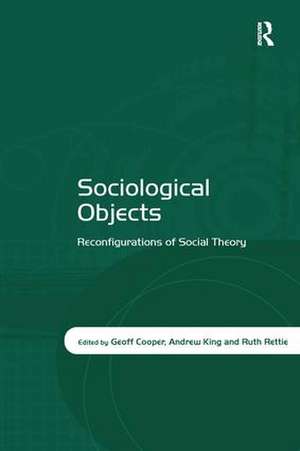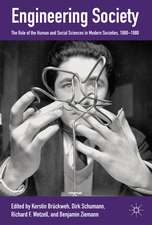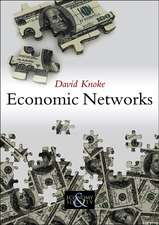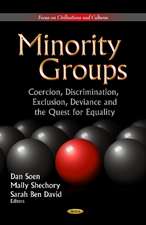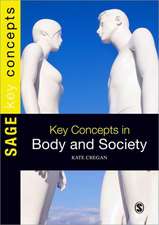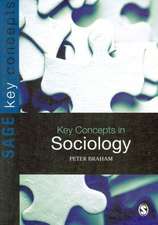Sociological Objects: Reconfigurations of Social Theory
Editat de Geoff Cooper, Andrew King, Ruth Rettieen Limba Engleză Hardback – 12 feb 2009
Preț: 1054.71 lei
Preț vechi: 1286.24 lei
-18% Nou
Puncte Express: 1582
Preț estimativ în valută:
201.85€ • 208.52$ • 167.99£
201.85€ • 208.52$ • 167.99£
Carte tipărită la comandă
Livrare economică 25 martie-08 aprilie
Preluare comenzi: 021 569.72.76
Specificații
ISBN-13: 9780754672685
ISBN-10: 0754672689
Pagini: 218
Dimensiuni: 156 x 234 x 14 mm
Greutate: 0.45 kg
Ediția:1
Editura: Taylor & Francis
Colecția Routledge
Locul publicării:Oxford, United Kingdom
ISBN-10: 0754672689
Pagini: 218
Dimensiuni: 156 x 234 x 14 mm
Greutate: 0.45 kg
Ediția:1
Editura: Taylor & Francis
Colecția Routledge
Locul publicării:Oxford, United Kingdom
Notă biografică
Geoff Cooper is Reader in Sociology at the University of Surrey, UK. His research interests are in science and technology studies and sociological theory. He has published work on reflexivity, theory, research cultures, and social aspects of mobile telecommunications. Andrew King is Lecturer in Sociology at Kingston University, UK. His main areas of interest are in ethnomethodology and conversation analysis, and his research is concerned with the application of these approaches to the study of young adulthood. Ruth Rettie is Senior Lecturer in Internet Marketing at Kingston University, UK and Associate Lecturer at the University of Surrey. She has published many papers in the field of Management.
Recenzii
'Social theory is a field in turmoil, some of which is highly productive and interesting. The papers in this volume represent some of the best of the turmoil. They reflect anew on the Durkheimian question of what sociological objects are in terms of the challenge posed by ethnomethodology and by changes in the social itself.' Stephen Turner, University of South Florida, USA
Cuprins
Preface; Chapter 1 The Objects of Sociology: An Introduction, Geoff Cooper; Part 1 Social Things; Chapter 2 Durkheim’s Globality, David Inglis, Roland Robertson; Chapter 3 Back to the Things Themselves: On Simmelian Objects, Olli Pyyhtinen; Chapter 4 Durkheim’s Social Facts and the Performative Model: Reconsidering the Objective Nature of Social Phenomena, Irene Rafanell; Part 2 Social Practices; Chapter 5 Communities of Practice vs. Traditional Communities: The State of Sociology in a Context of Globalization, Anne Warfield Rawls; Chapter 6 Working Out What Garfinkel Could Possibly be Doing with “Durkheim’s Aphorism”, Michael Lynch; Chapter 7 Mathematical Equations as Durkheimian Social Facts?, Christian Greiffenhagen, Wes Sharrock; Part 3 Social Theories; Chapter 8 Social Theory in Situated Practice: Theoretical Categories in Everyday Discourse, Nanna Mik-Meyer; Chapter 9 Appropriation, Translation and the Opening of Theory, Anna Tsatsaroni, Geoff Cooper; Chapter 10 ‘Identity after ‘The Moment of Theory’, Paul du Gay; Chapter 11 Concluding Thoughts: Reconfigurations of Social Theory, Andrew King, Ruth Rettie;
Descriere
What are the aims of sociology? How do they relate to the classical tradition? How, today, can we understand the relation between sociology and its object of study? This volume interrogates the changing relationship between contemporary and classical sociology and the conceptual and theoretical foundations of the discipline. The contributors argue that recent historical and conceptual developments make a reconsideration of these questions timely.
